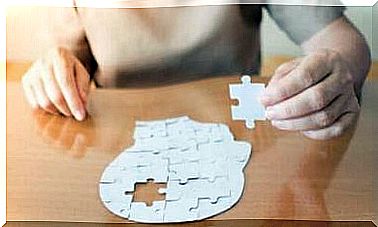Emotional And Rational Decisions – Which Are Better?

Emotional and rational decisions… do they really differ that much? You probably often tell yourself that you have to keep a cool head and not let your heart rule when you make a decision. You think that you have a better chance of making the right decision. It is as if you have to wrestle with these two “warring” parties on a daily basis in order to decide what to do.
To some extent this is true. No one acts or makes decisions solely on the basis of their emotions. Nor is there anyone who follows his cold, austere and rational logic exclusively. In fact, the brain is an organ with an enormous number of connections. Each area and structure is interconnected with others.
The prefrontal cortex (which is linked to the most complex executive functions, which are based on analysis, attention and reflection) is in constant connection with the deeper parts of the brain that are associated with emotions. Therefore, the world of emotions and feelings is present in all decision making. All thoughtful and rational choices bear traces of your emotions.
But despite the existence of these channels, where information passes between emotion and logic, there is a peculiarity that cannot be ignored. Emotions always take over. Humans are primarily emotional beings and this fact means that we are always faced with many crossroads and dilemmas.

Emotional and rational decisions
Emotional decisions are generally looked down upon. It is as if it is always seen as you make the wrong decisions if you allow yourself to be “carried away” by your impulses, needs that are assumed to be unreasonable, or by your intuition. But even though it may seem ironic, most of the choices you make every day are governed by the same emotions that shape your behavior and actions.
However, acting on one’s emotions does not necessarily lead to mistakes. Emotions act as catalysts in your relationships. They make you connect with people and allow you to make choices in different areas of your life, so that your personality and your preferences and needs are in harmony.
Because after all, it is balance that emotions try to achieve. They aim to ensure your inner balance and, of course, your survival.
In the academic world, there are also studies that indicate that we should correct the misconception that emotional decisions in some way would always be irrational actions.
Studies, including those performed by Dr. Michel Tuan Pham at Columbia University, shows that people should stop looking at their emotional and rational sides as if they were separated. In other words, emotions can also be logical and rational.
However, there are clear and obvious exceptions. In some situations, we make decisions based on negative emotional states. These are moments when there is no inner harmony. An unsolved problem, desire or need that has not been met can cause you to make wrong choices.
Emotional states that can make you make decisions that you regret
One thing you must have in mind: you make the best decisions when you combine logic with emotion. But to come to these decisions effectively, you need to use your emotions to your advantage. However, this does not always happen, because there are conditions that limit you in different ways and it means that you are not mentally focused. Here are some examples:
- Sadness. If you make a decision when you are sad, depressed or depressed, then you will be content with the very least and not make any demands on yourself.
- Excitement. When you are full of joy, enthusiasm and zeal, this can affect your ability to make good decisions. On such occasions , you often let your impulses run away with you.
- Anxiety. Anxiety, stress and other mood disorders inhibit your ability to make decisions. Not only do they make you make decisions that you may later regret, but they also make it harder for you to think, evaluate, and reflect.
Emotional decisions made with logic and reason are the best
As the famous scientist António Damásio points out, emotions are not enemies of reason. In fact, they are an integral part of every decision you make and therefore you need to be fully aware of them.
If you understand them, can handle them and know how to face the challenges they face in times of discouragement and anxiety, then they will be your best allies.
Your decisions pave the way for you through life. Undoubtedly, you will always make both good and bad decisions. But the most important thing is that you do not act impulsively. You need to make sure that your needs match your desires and your experience with your intuition.
You can never tell the difference between emotion and logic. But if you use them well, they can bring you closer to happiness. Clearly, it is possible to reconcile emotional and rational decisions in order for you to increase your well-being!









